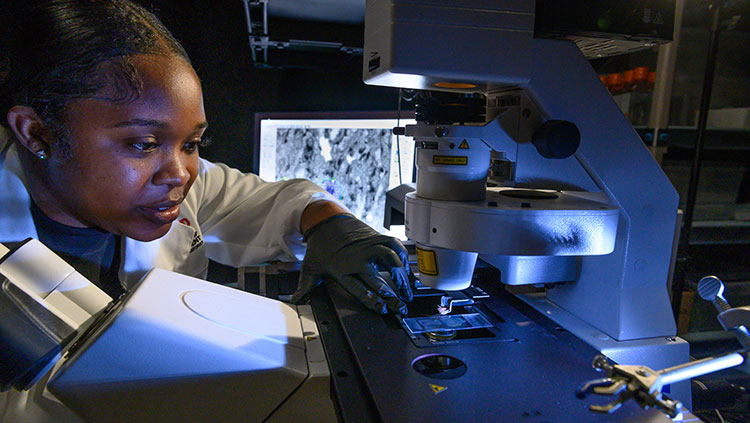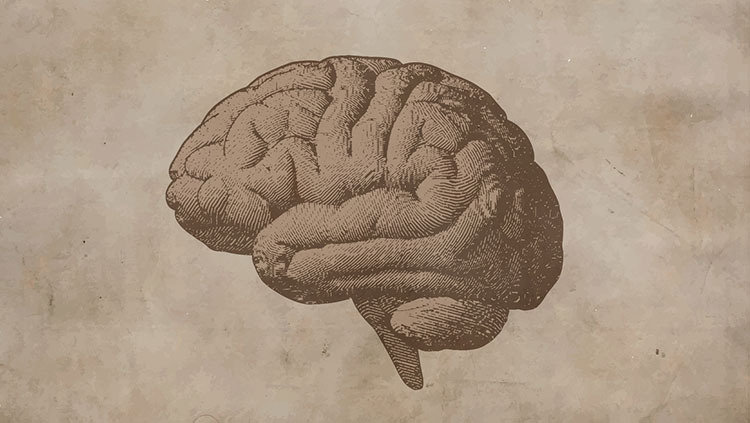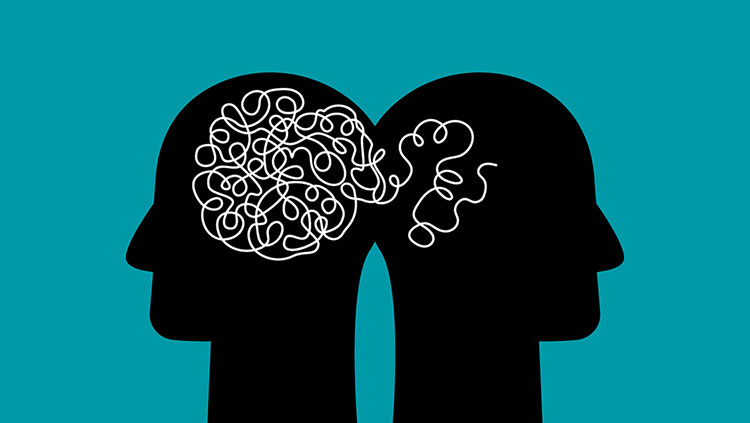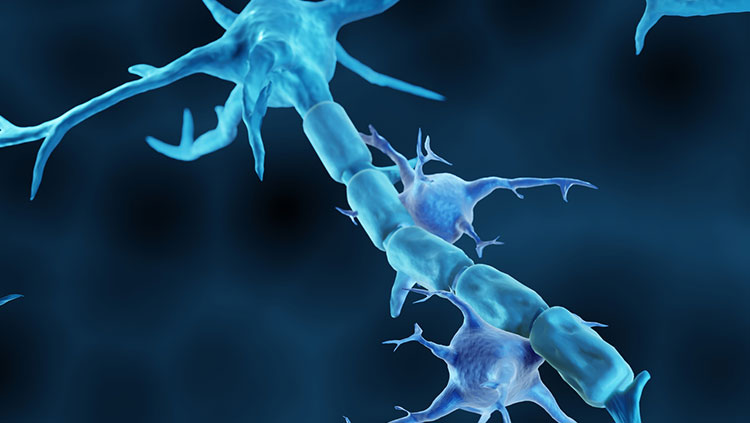ICYMI: How Do Ancestry and Environment Influence Brain Illness Risk Among Black Americans?
- Published13 Jun 2024
- Author Bella Isaacs-Thomas
- Source BrainFacts/SfN

Your genes are just one of several factors affecting your overall health. Genetic ancestry can be an important indicator of how likely someone is to develop a particular disease. In a paper published May 20 in Nature Neuroscience, researchers from the African Ancestry Neuroscience Research Initiative (AANRI) examined the role genetic ancestry plays in risk for brain illness. While risk for some conditions is associated with genetic influences, others are affected by environmental factors.
AANRI is a collaboration between Baltimore-based institutions — Morgan State University, a historically Black university, and the Lieber Institute for Brain Development (LIBD) located at Johns Hopkins University — and leaders within the local Black community. The initiative’s goal is to advance racial equity and fill widespread information gaps within the neuroscience field.
In their premier paper published in May, the team examined how the information coded in genes is “expressed” to create proteins or certain RNA molecules, which in turn determine how our cells function. They analyzed tissue samples derived from neurotypical Black Americans whose families donated their brains after their deaths. They found African ancestry-associated gene expression differences contributed to a higher prevalence of neurological disorders, including Alzheimer’s, and immune-related traits like rheumatoid arthritis, but not psychiatric conditions like schizophrenia or behavioral traits like neuroticism when assessed alongside differences related to European genetic ancestry. This is important because Black Americans face a higher risk of brain illnesses like Alzheimer’s and stroke compared to other demographics. Black adults are also 20% more likely to experience mental health conditions like anxiety or depression. However, for mental health and behavioral conditions, environmental influences may be driving differences in gene expression as opposed to genetic ancestry, according to AANRI.
Genetic ancestry and race aren’t synonymous. Although a person’s race can also influence their health, it's a social construct with no basis in biology. Genetic ancestry, meanwhile, can be assessed and analyzed. The study’s authors hope clinicians could one day use this information to design personalized medical interventions that meet the needs of a specific patient.
Big Picture: AANRI researchers note in their paper that people with African ancestry make up less than 5% of major brain disorder studies. In contrast, more than 80% of genomic datasets are derived from people of European descent, according to the initiative. Their new research marks a crucial step forward in the effort to understand the relationship between genetic ancestry and brain health, address longstanding racial injustice in the medical field and eventually improve health outcomes for Black people in the United States. Daniel Weinberger, the study’s senior author and CEO of LIBD, told Science that he hopes to pursue comparable research efforts to assess the brain genetics of people of Asian and Indigenous North American ancestry.
Read More: A new study of brain samples from Black people shows the influence of environment and genetics on mental disorders. Science
More Top Stories
- An AI-driven bilingual brain implant is helping a stroke survivor communicate in both Spanish and English. NBC News
- Newborns who were exposed to more than one language in utero are attuned to a broader range of spoken sounds. Newsweek
- Neurologists analyzed four patients' brain waves using deep brain stimulation to predict the severity of their chronic pain and differentiate it from acute pain. Popular Science
- Eurasian Jays can draw on their memories to recall where they previously stashed food. Scientific American
- Climate change-driven extreme temperatures and weather events are taking a widespread negative toll on neurological health. Bloomberg
- An implant successfully translated brain signals into words after people "spoke” them internally — without making an external move or sound. Nature
- New research suggests the brain clears less waste during sleep or under anesthesia, a controversial conclusion contradicting prior assumptions in the field. The Transmitter
- People who say they lack an inner monologue performed worse on tests that involved recalling some words and imagining whether others would rhyme. The Conversation
- Understanding how our brains differentiate between speech and music could improve rehabilitation options for people with auditory or language disorders. Futurity
- Certain neurons both anticipate future events and replay past ones during sleep. Technology Networks
CONTENT PROVIDED BY
BrainFacts/SfN


.jpg)















